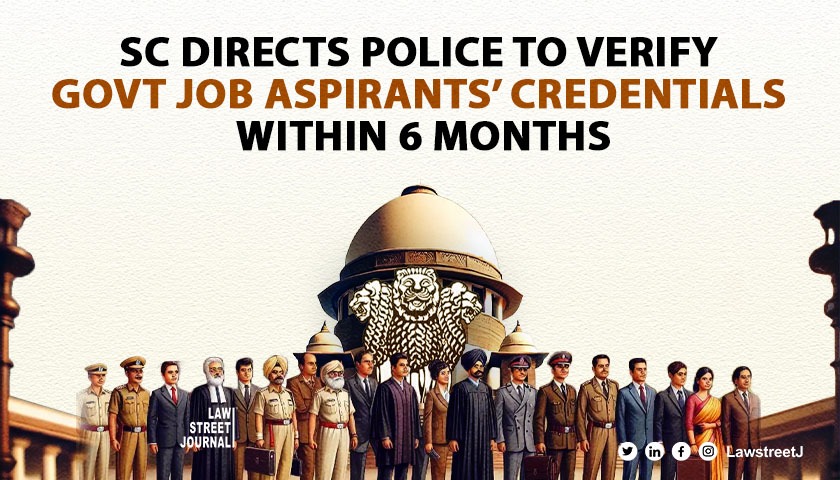NEW DELHI: The Supreme Court has ordered police officials of all the state governments to check and verify documents pertaining to the character, antecedents, nationality, genuineness produced by the candidates selected for government jobs not later than a period of six months from the date of their appointment.
A bench of Justices J K Maheshwari and R Mahadevan issued the direction also stating only upon verification of the credentials of the candidates, their appointments will have to be regularised so as to avoid further complications.
Supreme Court Mandates Background Check for Govt Job Selections
The court here set aside the Calcutta High Court's judgment of August 16, 2023 which allowed the West Bengal government's writ petition against the West Bengal State Administrative Tribunal's decision quashing termination of an ophthalmic assistant, Basudev Datta two months prior to the date of his retirement and 25 years of service.
The petitioner joined the public service on March 6, 1985, but the verification report was communicated by the police to the department only on July 7, 2010, only two months prior to the date of retirement on the ground that he was not citizen of the country.
Govt Job Appointments Subject to Police Verification, Rules Supreme Court
The appellant claimed his nationality as Indian on the strength of the migration certificate on May 19, 1969 issued in favour of his father. His family has migrated from East Pakistan, now Bangladesh.
The court pointed out the provisions relating to citizenship are enshrined in Part II of the Constitution of India under Articles 5 to 11. Section 4 of the Indian Citizenship Act, 1955, entitles the appellant’s father to be treated as a citizen by descent. The appellant is also entitled to citizenship by registration as per Section 5 of the Act.
The court also cited Citizenship Amendment Act, 2020 which stated that the persons like the appellant herein are not be treated as “illegal migrants”. Once an application has been submitted, the authority concerned has to take appropriate decision within a reasonable time by taking into consideration all the applicable laws and the documents produced by the appellant. However, no decision has been taken against the appellant, the bench said.
While examining the matter, the court held that the order of termination passed against the appellant was arbitrary, illegal and violative of the principles of natural justice, which cannot be sustained.
The bench found that the tribunal was right in observing that the appellant was terminated without following the principles of natural justice and without affording any opportunity to explain his case before it.
In the case, the bench noted in all these documents, including the show cause notice, no reason was mentioned as to why the appellant was considered as ‘unsuitable’ for employment to the post. Furthermore, the alleged police verification report was not served on the appellant.
Emphasising reasons are heartbeat of every order and every notice, the bench said, "Every administrative or quasi-judicial order must contain the reasons. Such reasons go a long way in not only ensuring that the authority has applied his mind to the facts and the law, but also provide the grounds for the aggrieved party to assail the order in the manner known to law."
The court pointed out in the absence of any reasons, it also possesses a difficulty for the judicial authorities to test the correctness of the order or in other words, exercise its power of judicial review.
The bench also said the failure to furnish the documents referred and relied in the notice would vitiate the entire proceedings as being arbitrary and in violation of the principles of natural justice.
In the case of appellant, the court noted no opportunity of personal hearing was provided to the appellant to defend his stand effective before passing the termination order.















